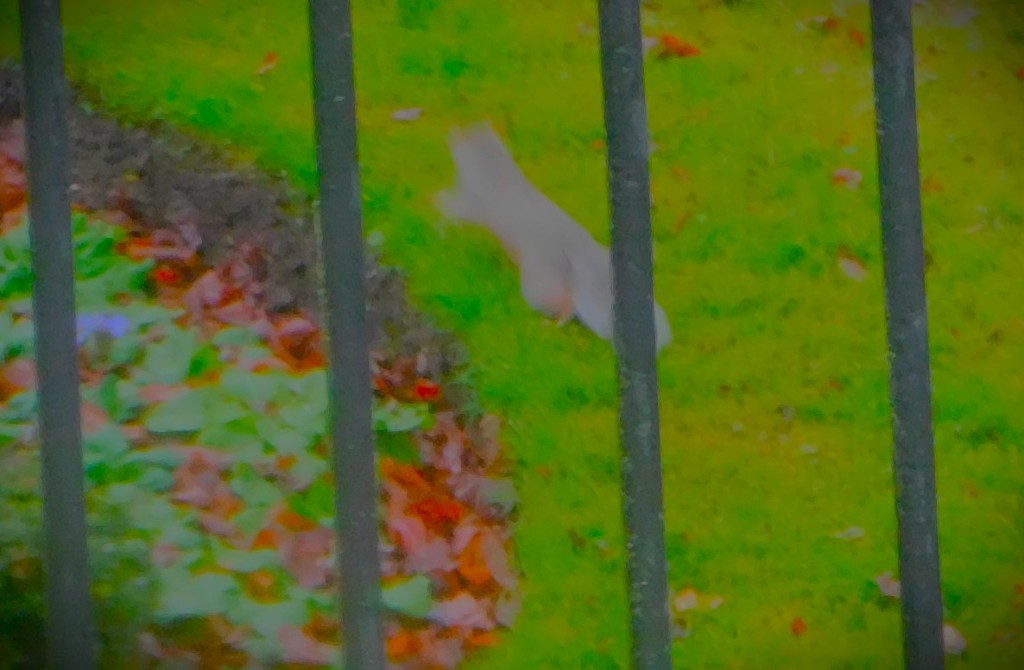This is a two-in-one post – yesterday saw the start of England’s new era in ODI cricket after the disaster of the world cup, and I look back at that match. I also parade an all time XI of players whose given names begin with K. Before getting into either of the main features I have on other thing to do…
ACKNOWLEDGE AN OMISSION
I noted yesterday when I covered cricketers whose given names began with J that I was dealing with an embarrassment riches. So much was the case that I entirely missed someone with a claim to place in the XI and to whom I should certainly have given at the least an honourable mention: Joel ‘Big Bird’ Garner the extra tall West Indies quick bowler of the 1970s and 80s. Note that I make no effort to perform the blogging equivalent of burying this rectification in 6 point type in the middle of page 27.
AN UNDERWHELMING RELAUNCH FOR ENGLAND
Yesterday saw the first match of a three match ODI series between the West Indies and England. The former had failed to even qualify for the recent ODI world cup, while the latter had an unmitigated disaster of a tournament.
THE PRELIMINARIES
After their world cup nightmare the England team showed a number of changes. Unfortunately Jos Buttler was allowed to retain the captaincy, a mistake which was to prove costly. Another poor call was the selection of left arm medium pacer Sam Curran who had proven valueless at the world cup. On the credit side a new look opening pair of Phil Salt and Will Jacks looked like a step in the right direction, as did the selection of young leg spinner Rehan Ahmed. Liam Livingstone was also in the XI, being treated as a bowling all rounder, scheduled to come in at seven and expected to bowl a full allocation of 10 overs. The West Indies had selected two frontline spinners as well, Gudakesh Motie (left arm orthodox) and Yannic Cariah (leg spin). Buttler won the toss and decided that England would bat, a correct call in my opinion.
THE ENGLAND INNINGS
Salt and Jacks made a blazing start, and were going at ten an over at one point, but both got out with the job half done, which was representative of the England innings as a whole. In the end, with the assistance of a late flurry from Sam Curran and Brydon Carse, England tallied 325 from their 50 overs. Gudakesh Motie had 2-49 from his ten overs, and Yannic Cariah 2-62 from his.
THE WEST INDIES RESPONSE
This was a tale of good spin bowling, good pace bowling from Gus Atkinson, dire pace/ seam bowling from Carse and Curran and terrible captaincy by Buttler, with Shai Hope playing a great innings, Romario Shepherd a spectacular one, and Sherfane Rutherford a brief but supremely eventful one.
Bizarrely, on a pitch that was helping spin, and with two of England’s designated pace options taking a hammering, Buttler chose not to deploy sixth bowler, off spinner Will Jacks. This piece of captaincy, curious at best, downright dreadful at worst, would cost England the match.
All seemed to be going pretty well for a time, and at one point the West Indies required run rate was close to 11 an over. However, once Rehan Ahmed (an exemplary display of leg spin bowling earning him 2-40 from his 10 overs) was finished, no one else was quite as good, though both Livingstone and Atkinson conceded runs at a respectable rate. The problem was the bowling of Curran and Carse, and the stubborn refusal of Buttler to deploy Jacks. Shepherd and Hope combined to take 23 off one Curran over, which made the ask manageable for the West Indies. After 48 of their 50 overs, with all of Ahmed, Livingstone and Atkinson bowled through and it having long since become too late to introduce Jacks the West Indies needed 19. Buttler opted to entrust the 49th over to Sam Curran, who had leaked 79 from eight overs up to that point. Five balls later, three of which had been dispatched into the stands Curran’s figures stood at 9.5-0-98-0 and West Indies had won the game with seven balls to spare. Shai Hope after a cautious start necessitated by circumstances had finished in glorious style, taking his score to 109* off 83 balls, his 16th ODI century, an innings in the course of which he passed 5,000 career ODI runs. Shepherd had hit 48 off 28 balls, Rutherford 6 off three, each ball being a genuine event – he hit his first ball in ODI cricket for six, was given out to his second but had the decision overturned, and then holed out off his third. Also worthy of mention was opener Alick Athenaze, whose 66 prevented his side from being sunk without trace. Hope was deservedly Player of the Match. Had England managed to win, Rehan Ahmed would have been an equally deserving recipient of the award for his bowling, but the incompetence of Curran and Carse and the poor captaincy of Buttler meant that Ahmed’s great effort was ultimately in vain and England’s brave new era of ODI cricket had started with a defeat. England need a new ODI skipper as a matter of urgency. Personally, with no absolute stand out candidate I would gamble on Jacks – slow bowling all rounders often make good skippers, and albeit on a small sample size, England historically fare well when captained by someone with first two initials WG – eight wins out of 14 matches under such a captain to date.
THE K XI IN BATTING ORDER
- Kraigg Brathwaite (West Indies, right handed opening batter). Opening batters with given names beginning with K were hard to find, but the West Indian is noted for being able to bat time and has a respectable record in what has been a problematic area for his side ever since the Greenidge/ Haynes pairing broke up.
- Krishnamachari Srikkanth (India, right handed opening batter). With a blocker in the number one slot I wanted my other opener to be more aggressively inclined. His career highlights include being the top individual scorer in a world cup final that his side won.
- Ken Barrington (England, right handed batter, occasional leg spinner). One of the least appreciated of test cricket’s super stackers, his average of almost 59 an innings over the course of a long career puts him right up among the all time greats.
- Kumar Sangakkara (Sri Lanka, left handed batter, wicket keeper). Few would seriously dispute his claim to be regarded as his country’s best ever test match batter.
- Kane Williamson (New Zealand, right handed batter). Another modern great, the third element of an extremely powerful engine room for this XI.
- *Keith Miller (Australia, right handed batter, right arm fast bowler, captain). One of the greatest all rounders ever to play the game, and reckoned by everyone who played under him to have been a superb captain as well.
- +Kyle Verreynne (South Africa, wicket keeper, right handed batter). Yet to fully establish himself at international level, but his domestic record is excellent.
- Kapil Dev (India, right arm fast medium bowler, right handed batter). An extraordinary record for his country, even more so given that he was often the only member of the attacks of which he was part who was actually capable of bowling a ball at above medium pace.
- Kagiso Rabada (South Africa, right arm fast bowler, right handed batter). An indisputably great fast bowler.
- Katie Levick (England, leg spinner, right handed batter). The only non-international I have picked, she has a splendid record in domestic cricket, and a little like George Dennett (see this post) she has been unlucky that her career has happened at a time when England women have been exceptionally well served by spinners. With Miller capable of turning his hand to off spin it seemed sensible to select a specialist spinner of a different type.
- Ken Farnes (England, right arm fast bowler, right handed batter). A promising career was nipped in the bud by the outbreak of WWII, but by then he had done enough to earn his place in this XI.
This XI has an opening pair who should combine well, a very powerful 3,4,5 combination, an ATG all rounder, a quality keeper-batter, a great bowling all rounder and three high quality specialist bowlers. Farnes, Rabada, Miller, Kapil Dev and Levick is by an reckoning a powerful bowling unit.
HONOURABLE MENTIONS
Kevin Pietersen is probably the standout name among those I could not find space for in the XI. The only way to get him in would be to use him as an opener, presumably in place of Srikkanth, and that was never a role he relished. Two Indian princes, the uncle and nephew KS Ranjitsinhji and KS Duleepsinhji were also unlucky to miss out on middle order slots. Kim Hughes had talent to burn but ended with a record that was not weighty enough to merit inclusion. Ken Rutherford recovered from a dreadful start at test level to become a highly respected middle order batter, but someway short of qualifying for inclusion in this XIs middle order. Karen Rolton, who has a cricket ground named after her in her native Australia, was s superb batter who deserves at least this mention. Kusal Mendis of Sri Lanka is a fine player, but not quite fine enough in my view. Ken ‘Slasher’ Mackay, a left handed blocker and right arm medium pacer, was also on the fringes. KL Rahul would have been in as keeper had I been picking with ODIs in mind. Karun Nair did once score a test match triple century, but that innings accounted for four fifths of his career tally at that level. Ken Wadsworth and Kiran More were both challengers for the keepers slot, while Keith Andrew was a top quality keeper, but a bunny with the bat. Keith Piper, keeper-batter in Warwickshire’s mighty unit of the mid 1990s also deserves a mention. Keith Barker, a left arm pacer and a useful lower order batter, was a candidate for the number eight slot, but I felt that Kapil Dev’s international pedigree had to tell in that instance. Kyle Abbott was a candidate for a seam bowling slot, but with Kapil Dev already inked in I preferred the fire and brimstone of Farnes. Kuldeep Yadav was the other candidate for the specialist spinner’s slot. Krom Hendricks, the first non-white South African cricketer to have been a documented victim of discrimination based on the colour of his skin, does not have a detailed enough career record to be selected, but warrants an honourable mention.
PHOTOGRAPHS
My usual sign off…

























































